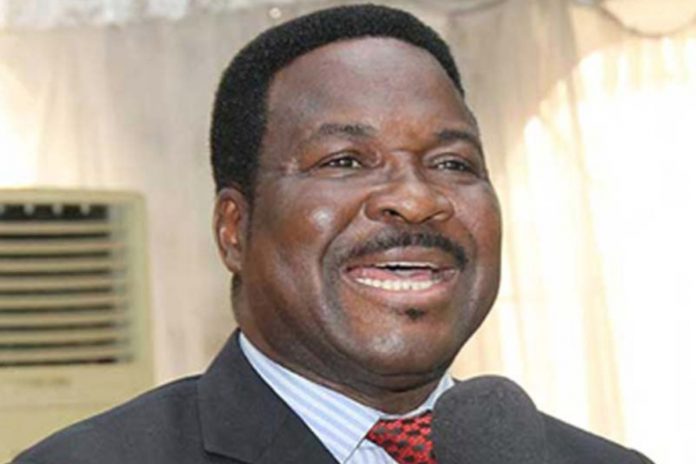Renowned constitutional lawyer, Chief Mike Ozekhome, SAN, has questioned the legality of Nigeria in particular and the Economic Community of West African States, ECOWAS, in general, over the threat to invade Niger following recent coup in the West African landlocked country.
This was as he charged International Human Rights Commission, IHRC, to do its best to encourage Africa in the development of international humanitarian laws and responses to international situations of conflicts.
Recall that a group of military officers led by General Abdourhamane Tchiani had on 26 July, 2023, toppled President Mohammed Bazoum at the Presidential Palace in Niamey.
Mr Bazoum is being held by the junta in Niger.
Several diplomatic efforts by Nigeria-led ECOWAS to restore constitutional order in Niger have been abortive, necessitating the threat by ECOWAS, chaired by Nigeria’s president, Bola Tinubu, to issue threat of possible invasion to restore the deposed president.
However, the legal luminary, in a keynote presentation at a Symposium on International Humanitarian Law and Armed Conflicts: An African Perspective, held in Abuja, said Nigeria had done little or nothing to discourage sit-tight Africa rulers from actions capable of breeding coups in the continent.
Besides, Ozekhome reasoned that the Republic of Niger was a sovereign nation with full status of sovereign state, hence does not need foreign interference in its governance structure.
He recalled that no foreign nation had intervened in Nigeria’s political affairs with the several coup d’état to its credit, between 15 January 1966 and 17 November,1993.
Speaking further at the event organised by International Human Rights Commission, Ozekhome insisted that Nigeria’s interference on the governance structure in Niger was an infringement on the sovereignty of the country.
He said: “The international community never came to dictate to us on how to govern ourselves during instances of military interventions. We have no moral authority to go and intervene in another sovereign state’s internal affair.”
He, however, backed imposition of economic, diplomatic and related sanctions on Niger, noting that the rights of the regional body went beyond it’s bounds with pronouncement of possible invasion.
According to him, the return of military coups in Africa was due to inability of the region’s leaders not only to give citizens anticipated leadership but also foisting themselves on the people against their will.
“I think the question we should ask is ‘are these coups against democracy in the true sense of the word? In 1963, former American president, Abraham Lincoln, described democracy as as government of the people, for the people and by the people.
Are these coups solely against such democratic process or the coups are genuine based on anger by citizens against their oppressive, repressive rulers who want to govern perpetually?
Some are even from father to son, like the case of Guinea Bissau! Are you the only family in Guinea? Are you saying that there are no other families in those countries that can produce leaders?
African leaders should give good governance to the people. Where they are not ready for the gain, they should be ready for the pain,” he added.
On his part, IHRC Ambassador-at-Large and Head of Diplomatic Mission, Nigeria, Amb. Duru Hezekiah, advised participants to engage in more effective frameworks for humanitarian interventions, peace-building and security in Africa and the rest of the world.
He explained that, “The International Human Rights Commission (IHRC), is an organization that works to promote human rights for everyone, everywhere in the world without discrimination, whether of colour, faith, political affiliation, origin, wealth, gender, etc.”
“An advocacy task that prevents conflict, promotes peace and harmony across communities, nations and globally.
The Nigerian Mission of IHRC has been working to uphold trust, foster collaboration, negotiate and resolve conflicts, and influence positive outcomes in humanitarian interventions.
Part of the accomplishments of the Mission so far in Nigeria include humanitarian and disaster interventions, activism to end violence against women, women and girls empowerment at IDP Camps, prison decongestion and advocacy on the rights of inmates, identifying with the Coalition of Civil Society Groups in Nigeria in the fight against illegal immigration and human trafficking, series of IHRC educational projects amongst others,” he further explained.






